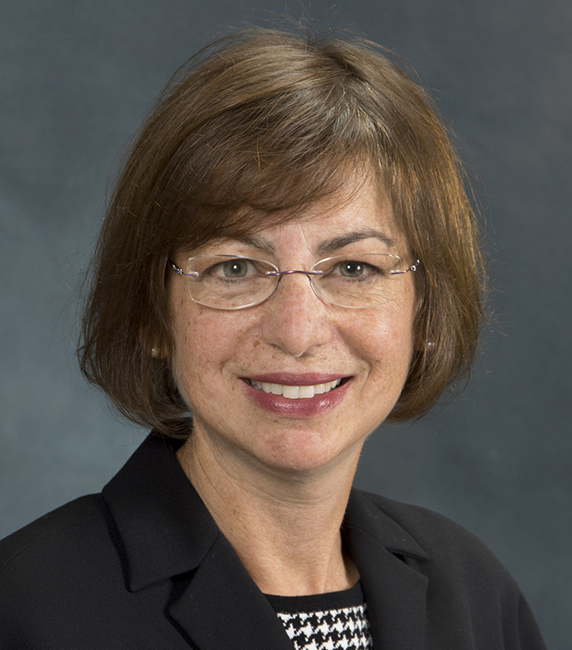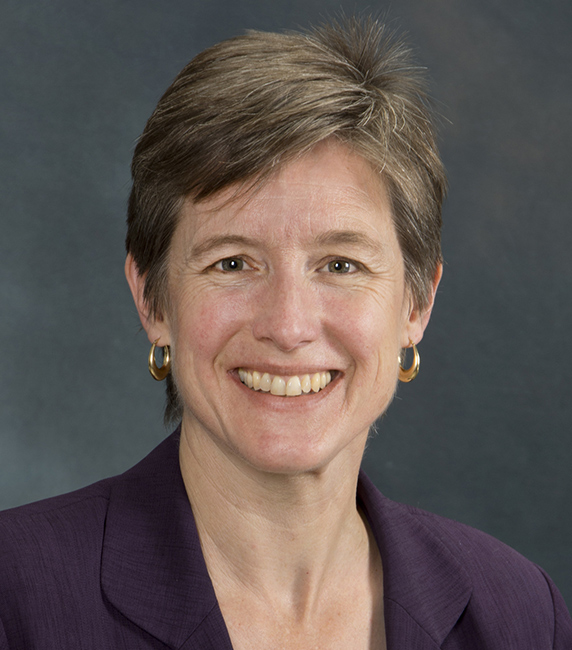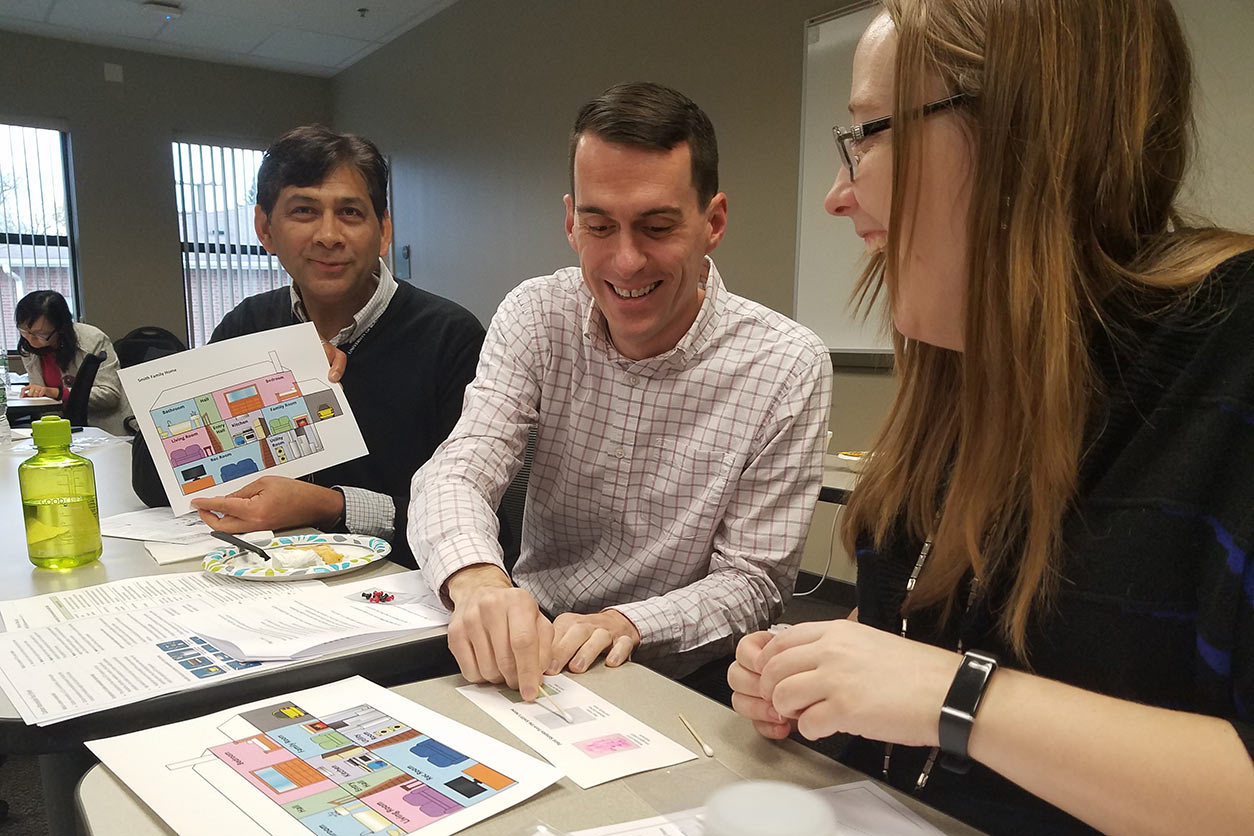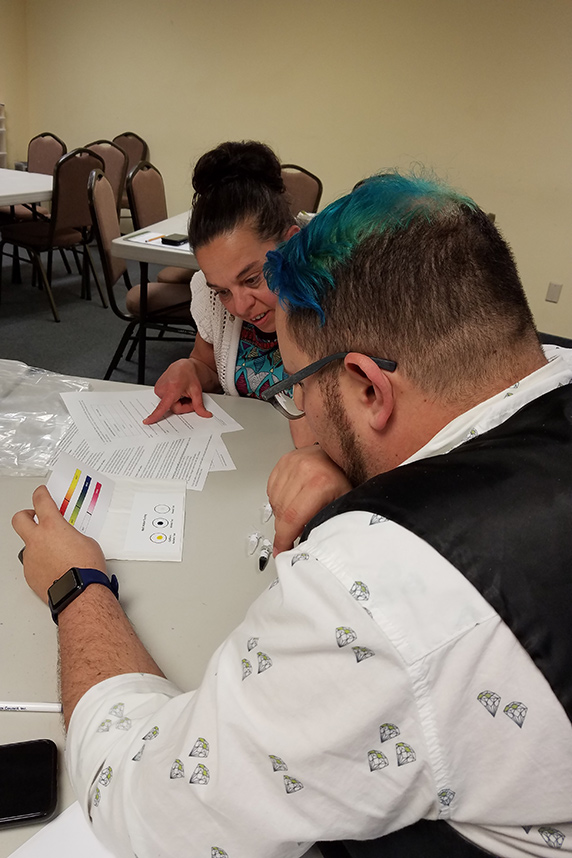 Markowitz develops science education and outreach programs for students, teachers, and the general community that use hands-on and minds-on learning to boost science literacy. (Photo courtesy of UR)
Markowitz develops science education and outreach programs for students, teachers, and the general community that use hands-on and minds-on learning to boost science literacy. (Photo courtesy of UR)One woman-owned small business is making it easier for people to learn about environmental pollutants in their local communities, thanks to NIEHS funding.
Science Take-Out, owned by Dina Markowitz, Ph.D., received two small business grants from NIEHS to continue its mission of making science education available to the public by developing community environmental health (CEH) education kits.
Science Take-Out joined forces with University of Rochester (UR) faculty and staff to design these hands-on kits to help diverse community audiences learn about environmental health issues. It is a partnership typical of the cross-talk between universities and local communities that NIEHS Community Engagement Cores (CEC) are intended to foster.
“The kits will engage people in all the elements of environmental health literacy [EHL], from awareness to action,” said Katrina Smith Korfmacher, Ph.D. She directs the UR Community Engagement Core.
Hands-on learning
Each kit contains materials for users to conduct simulated experiments (see sidebar) that illustrate core concepts of EHL. For example, in the Testing Blood for Lead kit, users conduct and analyze a simulated blood test to determine a child’s blood lead level.
 Korfmacher’s research addresses environmental health information and policy needs of Rochester-area communities. (Photo courtesy of UR)
Korfmacher’s research addresses environmental health information and policy needs of Rochester-area communities. (Photo courtesy of UR)The kit contains a participant guide, lead poison information sheet, and a solution that simulates lead-containing blood. Users test the solution and match the test paper to a color chart to determine levels of the simulated lead.
Levels are associated with health risks. For example, users learn that even very low levels of lead can affect children’s brain development. Finally, the kits encourage discussions about actions to reduce exposures to environmental health hazards such as lead.
From classroom to living room
“Science Take-Out used the first grant to create eight environmental health education kits for high school classroom use,” explained Markowitz, director of the UR Life Sciences Learning Center and president of Science Take-Out. “And we used the second grant to adapt the kits for community use.” Adaptations included changes to reach more diverse populations.
 Irfan Rahman, Ph.D., left, a UR environmental medicine researcher, tries out a kit, as do Kathryn Buettner, right, from the UR School of Nursing, and others. (Photo courtesy of UR)
Irfan Rahman, Ph.D., left, a UR environmental medicine researcher, tries out a kit, as do Kathryn Buettner, right, from the UR School of Nursing, and others. (Photo courtesy of UR) Team members from the Child Care Council, a child care agency in Rochester, New York, learn about environmental contaminants using the Safe Well Water kit.
Team members from the Child Care Council, a child care agency in Rochester, New York, learn about environmental contaminants using the Safe Well Water kit.“The community rollout raises environmental health awareness beyond the classroom,” explained Liam O’Fallon, a population health specialist in the NIEHS Population Health Branch.
The second grant also involves further CEC collaborations. Science Take-Out and UR are collaborating with University of North Carolina at Chapel Hill, University of Texas Medical Branch-Galveston, WE ACT for Environmental Justice, and Columbia University.
“The partnerships will allow our grantees to see how well the kits can be used in settings outside of Rochester and to get wider input as they continue to refine the kits,” O’Fallon observed.
(Frieda Wiley, Pharm.D., is a contract writer for the NIEHS Office of Communications and Public Liaison.)




